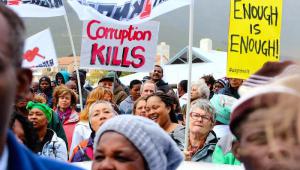A large survey by the Organization for Economic Co-operation and Development indicates high levels of disenchantment with how governments deliver social policies.
More than half of people asked say they do not receive their fair share of benefits given the taxes they pay, and nearly three quarters say governments do not do enough to provide social and economic security.
“This is a wake-up call for policy makers,” said OECD Secretary-General Angel Gurría.
“OECD countries have some of the most advanced and generous social protection systems in the world. They spend, on average, more than one-fifth of their GDP on social policies.
“Yet, too many people feel they cannot count fully on their government when they need help.”
The OECD surveyed 22,000 citizens in 21 countries and its findings, entitled ‘risks that matter’, highlight extensive levels of insecurity among the public.
Only a minority of respondents indicated that they are satisfied with access to services like healthcare, housing, and long-term care.
However, large numbers of people believe governments would not provide a proper safety net if they were to lose their jobs, fall ill, or in their old age.
More than half of citizens think they will not be able to access public benefits easily if they need them.
Moreover, in most countries the survey highlighted a strong belief among citizens that they are excluded from debates over how social policy should be designed, and a widespread perception that people do not receive their fair share of benefits given the taxes they pay.
Gurría added: “A better understanding of the factors driving this perception and why people feel they are struggling is essential to making social protection more effective and efficient.
“We must restore trust and confidence in government, and promote equality of opportunity.”













